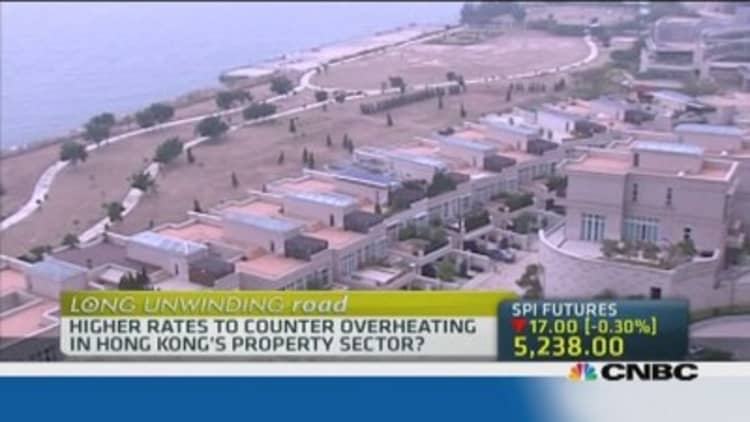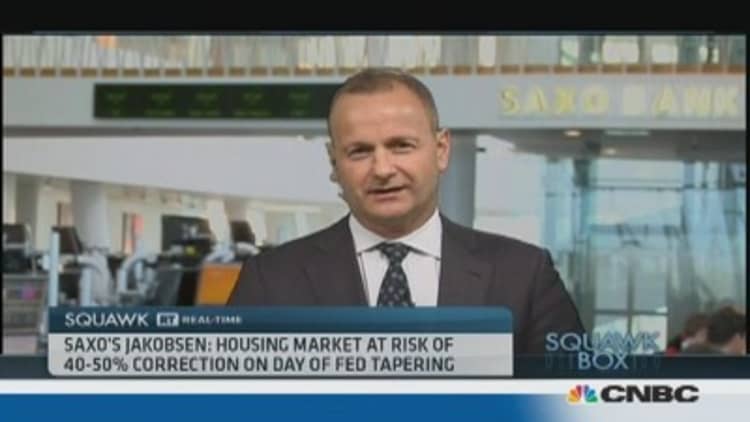Concerns that Hong Kong's residential property prices could take a hit from any moves by the Federal Reserve to begin tapering its asset purchases might not pan out, analysts say.
After years of break-neck advances, with Hong Kong's home prices more than doubling since 2008, many analysts have predicted sharp falls next year, in part on expectations there will be less liquidity sloshing around in the market after the Fed eases back on the easy money tap – a move also expected to push up interest rates.
But some are not convinced tapering will affect residential prices much.
(Read more: 30% correction coming for Hong Kong housing: Barclays)

"Residential property prices act more like short-duration assets, given their buyers' funding reliance on short-term floating rate mortgages. A steeper yield curve, driven by higher long-term rates, will have limited impact on the immediate mortgage costs for a prospective homebuyer," said Andrew Lawrence, an analyst at CIMB, in a note last week.
To be sure, the reaction by developers' stock prices may not be quite as sanguine. Noting that Hong Kong property stocks' performance this year has been tied to U.S. interest rate changes, CIMB expects property stocks will fall, although they may outperform the shares of landlords and REITs; it is underweight on the sector as a whole.
(Read more: Hong Kong luxury home buyers queue amid talk of last hurrah)
"We see no value in the sector at current share prices and consider the risk/reward trade-off to be unfavorable," Lawrence said.
Others do expect rising rates will affect purchases of physical property. Property services firm Jones Lang LaSalle expects rising rates coupled with government cooling measures will keep sales activity weak, noting 2013's average monthly sales are down around 38 percent from 2012 levels. Capital values were down by around 1.9-2.6 percent across the mass-market and luxury segments, it said.

"Given the low volume situation, capital values will remain under pressure and continue to experience mild corrections," it said in a note last week. "However, we do not expect to see a free fall in home prices in the absence of fire sales."
(Read more: Why Asian property investors may fear US taper)
Daiwa has also noted property prices seem to be finding some support. "Flat owners will need to cut prices if they want to sell quickly, but it appears to us that not many people actually do want to sell," Jonas Kan, an analyst at Daiwa, said in a note last week.
Another factor set to support home prices: the government isn't likely to meet its land supply target, meaning fewer new housing units will be on tap, Citigroup noted in a report last week.
Early in 2013, the government indicated it expected land-supply potential for 25,800 units for the fiscal year ending March 2014, but the total for the first three-quarters has only been around 11,300 units, suggesting a significant miss, Citigroup noted.
(Read more: Where's the next property bubble building?)
It expects home prices to consolidate by about 10 percent within a year, compared with market expectations for an around 15-20 percent decline in a year and around 30 percent decline over two to three years. The bank is positive on select developer stocks.
— By CNBC's Leslie Shaffer. Follow her on Twitter: @LeslieShaffer1

